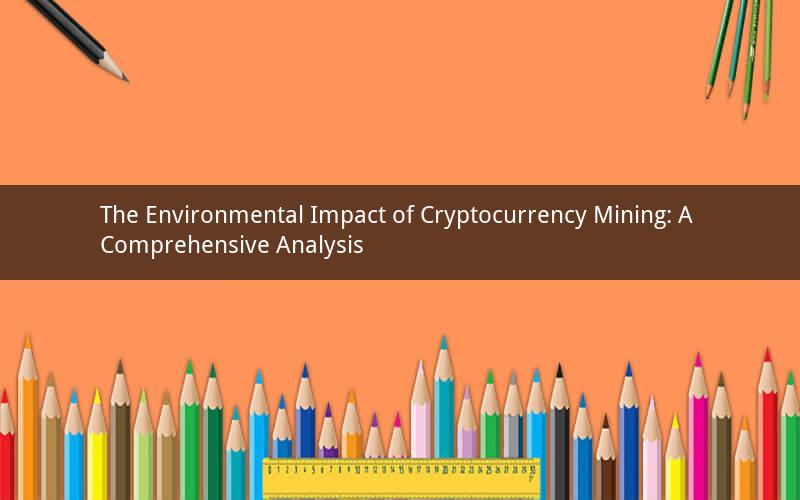
Introduction:
The rise of cryptocurrencies has brought about a myriad of discussions and debates, with one of the most controversial topics being the environmental impact of mining these digital currencies. Is mining cryptocurrency bad for the environment? This article delves into the complexities surrounding this issue, examining the environmental concerns, the technological advancements, and the potential solutions to mitigate the negative impact.
I. Environmental Concerns
1. High Energy Consumption:
One of the primary concerns regarding cryptocurrency mining is its high energy consumption. The process of mining involves solving complex mathematical problems, which requires substantial computational power. This, in turn, demands a significant amount of electricity, leading to a substantial carbon footprint.
2. Greenhouse Gas Emissions:
The energy-intensive nature of mining cryptocurrencies results in significant greenhouse gas emissions. These emissions contribute to global warming and climate change, exacerbating environmental problems on a global scale.
3. Electronic Waste:
Another environmental concern associated with cryptocurrency mining is the generation of electronic waste. The rapid pace of technological advancements in the field of cryptocurrency mining leads to the frequent replacement of mining equipment, resulting in a large amount of electronic waste.
II. Technological Advancements
1. Efficiency Improvements:
Despite the environmental concerns, technological advancements have been made to improve the efficiency of cryptocurrency mining. More energy-efficient mining hardware and algorithms have been developed, reducing the overall energy consumption and emissions associated with mining.
2. Renewable Energy:
Efforts are being made to harness renewable energy sources for cryptocurrency mining. By utilizing solar, wind, and hydroelectric power, the carbon footprint of mining can be significantly reduced.
III. Potential Solutions
1. Regulation:
Governments and regulatory bodies can implement regulations to promote responsible mining practices. These regulations can include energy efficiency standards, emissions limits, and proper disposal of electronic waste.
2. Community Efforts:
Individuals and organizations can contribute to addressing the environmental impact of mining by supporting initiatives that promote sustainable practices. This can include investing in renewable energy projects and advocating for responsible mining.
IV. Conclusion
Is mining cryptocurrency bad for the environment? The answer is not straightforward. While the high energy consumption and emissions associated with mining raise valid concerns, technological advancements and potential solutions offer hope for a more sustainable future. It is crucial for the cryptocurrency community to continue exploring ways to minimize the environmental impact while enjoying the benefits of digital currencies.
Questions and Answers:
1. Q: What is the main environmental concern regarding cryptocurrency mining?
A: The main environmental concern is the high energy consumption and resulting greenhouse gas emissions associated with the mining process.
2. Q: Are there any technological advancements that can reduce the environmental impact of mining?
A: Yes, there are technological advancements such as more energy-efficient mining hardware and algorithms that can help reduce the environmental impact.
3. Q: Can renewable energy be used for cryptocurrency mining?
A: Yes, renewable energy sources such as solar, wind, and hydroelectric power can be utilized for cryptocurrency mining, significantly reducing the carbon footprint.
4. Q: What role can governments play in addressing the environmental impact of mining?
A: Governments can implement regulations, such as energy efficiency standards and emissions limits, to promote responsible mining practices.
5. Q: How can individuals contribute to a more sustainable mining industry?
A: Individuals can support initiatives that promote sustainable practices, such as investing in renewable energy projects and advocating for responsible mining.